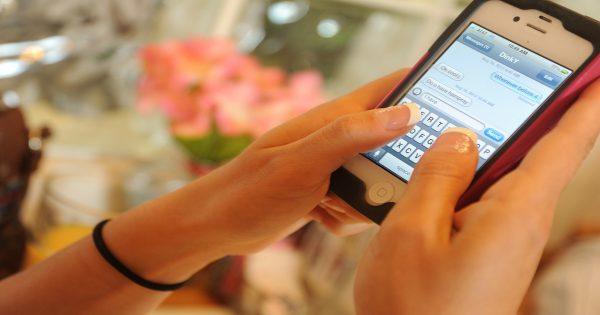
Text messages have become the primary mode of communication for the vast majority of people who own a cell phone. What started out as a clunky way to communicate in the early 00’s has advanced to the convenient QWERTY keyboard and predictive text, making it the means of choice for conversations both long and short. And as with anything humans come to rely on, the predictable progressives running California into the ground see another thing to tax that is utterly absurd.
As with most taxes, state officials want to make California that much more expensive for middle-income families to live there so they can subsidize cell phone plans for low-income residents.
In California, if you’re making under $120,000 per year, you’re considered “low income.”
Of course, this tax is the hairbrained idea of local officials and despite California being a state where ballots are routinely filled with ridiculous initiatives that ought to be the purview of the state legislature or county/city governments, the California Public Utilities Commission will be the ones deciding whether or not to implement the texting tax.
Conveniently, third-party messaging apps, like Facebook’s Messenger and WhatsApp, won’t be subject to the new texting tax.
Meaning users will simply switch from using cell phone provider texting to app-based texting to avoid the ill-considered tax.
Thankfully, local governments and news outlets are getting the information out to Californians and even the deep blue areas of the state are speaking out against the plan.
The president of the Bay Area Council, Jim Wunderman, is blunt in his assessment of the proposed new tax.
“It’s a dumb idea. This is how conversations take place in this day and age, and it’s almost like saying there should be a tax on the conversations we have,” he said.
What’s even more outrageous is the tax will not only apply to future texts. Texts residents sent in the past five years will be subject to retroactive taxation. However, that portion of the bill is the part that gives those opposed to it hope that it may not be legal.
Wireless customers in the state are already paying to subsidize low-income programs via their cell phone bills which include a percentage fee dedicated to the Public Purpose Program that has almost $1 billion in its budget. Perhaps California lawmakers should consider the forgotten middle, who pay their own cell phone bills and only see the cost creeping ever higher because their government wants to tax their conversations.
More About:Movies
